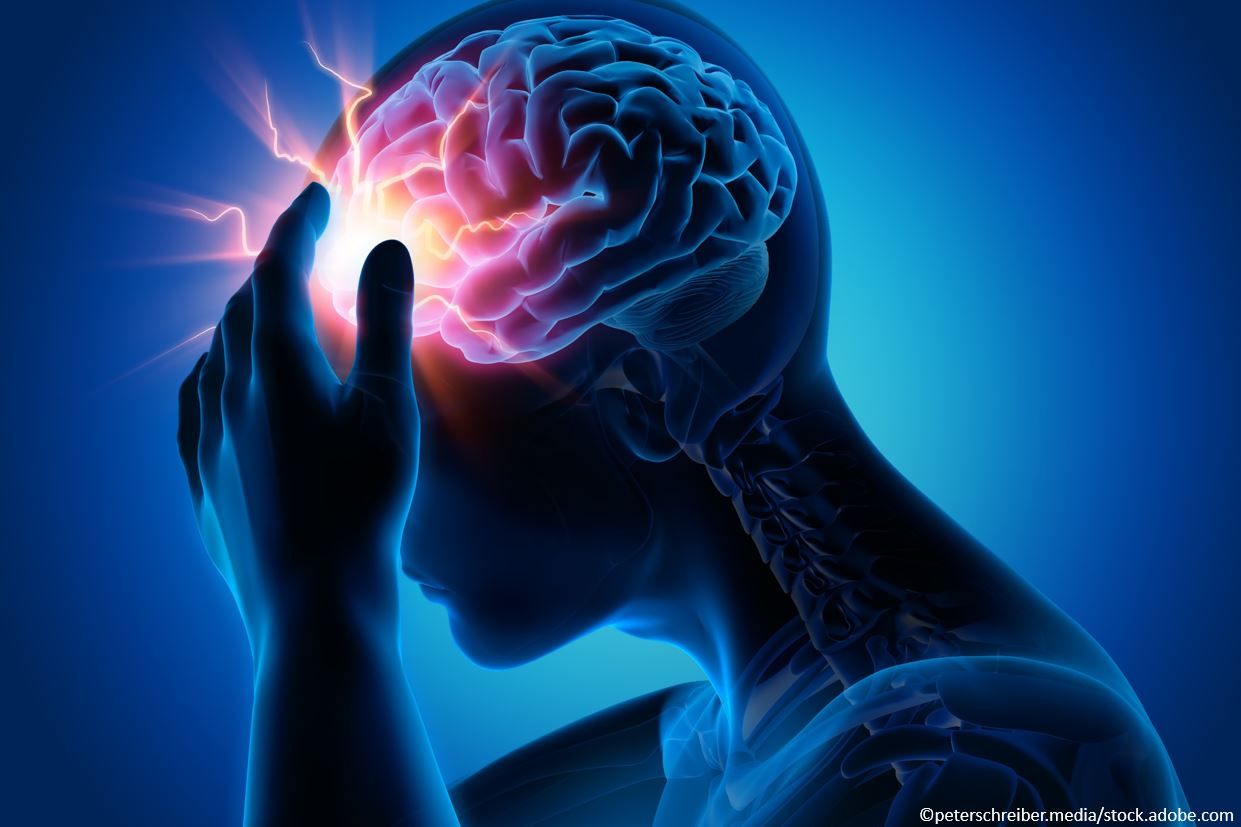- Clinical Technology
- Adult Immunization
- Hepatology
- Pediatric Immunization
- Screening
- Psychiatry
- Allergy
- Women's Health
- Cardiology
- Pediatrics
- Dermatology
- Endocrinology
- Pain Management
- Gastroenterology
- Infectious Disease
- Obesity Medicine
- Rheumatology
- Nephrology
- Neurology
- Pulmonology
Remote Electrical Neuromodulation Device Effective for Migraine Prevention in Pivotal Trial
The Nerivio REM device demonstrated a statistically significant reduction in migraine days/month vs a placebo device in both chronic and episodic migraine.

In adults with both episodic and chronic migraine headache, the remote electronic neuromodulation (REN) device Nerivio (Theranica) demonstrated superiority over a placebo device in reducing monthly migraine days when used for preventive treatment.
According to Theranica, the pivotal double blind, randomized placebo-controlled clinical trial met its primary endpoint, showing that in migraine patients with at least a 6-month history of headaches, treatment with Nerivio resulted in a reduction of 4.0 migraine days per month from baseline, compared with a reduction of 1.3 days in the placebo group (net therapeutic gain, 2.7 days; P<.001).
When investigators evaluated the impact of Nerivio on monthly migraine days separately for patients with chronic and episodic migraine, the former reported a reduction of 4.7 days, compared with 1.6 days for placebo (P =.001) and the latter a reduction of 3.2 days, compared with 1.0 days for placebo (P = .003).
"These data demonstrate Nerivio's potential to provide a new nonpharmacological preventive treatment option for people with migraine,” said primary investigator Brian Grosberg, MD, director, Hartford Healthcare Headache Program in Connecticut, said in a statement. "The high efficacy of Nerivio compared to placebo, with favorable safety and tolerability, suggests that REN could be a beneficial nonpharmacological therapy option for both preventive and acute treatment of migraine, subject to FDA approval."
The study’s 248 participants were aged 18 to 75 years, had a history of 6 to 24 headache days per 28-day period for each of the 3 months preceding the study. They were permitted to continue uring 1 medication with possible migraine-prophylactic effects. Excluded were any patients with an active implanted electrical and/or neurostimulator device, uncontrolled epilepsy, a history of opioid or barbiturate use, or who might have been pregnant or been breastfeeding.
A screening visit was followed by a 4-week baseline phase, an 8-week double-blind preventive treatment phase, and a 4-week open-label phase.
According to the study, 40% of the 248 study participants continued use of preventive medications, mainly prescribed oral medications, calcitonin gene-related peptide monoclonal antibody injections, and onabotulinumtoxinA injections. Among patients in this subgroup the findings were similar to the overall cohort, with Nerivio treatment yielding a reduction of 3.5 monthly migraine days compared with 1.5 days for the placebo device (P = .03).
Analysis of several additional endpoints also found treatment with Nerivio superior to that with placebo, including:
- Mean reduction of monthly all headache days from baseline: 4.5 days vs placebo 1.8 days p (P<.001)
- Reduction in monthly moderate/severe headache days: 3.8 days vs 2.2 days; P =.005
- Mean reduction of acute-medication days: 3.5 days vs 1.4 days; P = .001
- Percentage of patients experiencing a reduction in headache and moderate/severe headache days
Evidence continues to accumulate both from randomized trials and real-world studies for treatment of chronic pain diseases, like migraine, with nonpharmacologic therapies or along with medications, observed Alon Ironi, Theranica chief executive officer.
"It is well-known that individuals with migraine have varied responses to therapies, and sometimes respond best to a combination of different modalities.” He adds that findings from the current study augment support for developing migraine therapies beyond pharmaceuticals.
The company plans to submit details of the study to peer-reviewed publications and to present the data at future scientific conferences.
Reference: Grosberg B, Rabany L, Vizel M, et al. Effectiveness comparison of remote electrical neuromodulation and standard-care medications for acute treatment of chronic migraine: a post-hoc analysis. Pain Manag. 2022;12:837-844. doi:10.2217/pmt-2022-0053.
